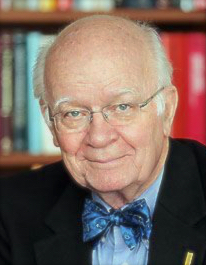An Irrelevant War?
Thursday the United States observed the centennial of its entry into World War I, a move which, historians like to say, “changed everything.” The nation lost 116,000 troops while nine million lives were lost worldwide
 Thursday the United States observed the centennial of its entry into World War I, a move which, historians like to say, “changed everything.” The nation lost 116,000 troops while nine million lives were lost worldwide. The map of Europe was reconfigured in the following years. Dictatorships arose, and the stage was set for Act II of what seems now to have been a two-act World War drama.
Thursday the United States observed the centennial of its entry into World War I, a move which, historians like to say, “changed everything.” The nation lost 116,000 troops while nine million lives were lost worldwide. The map of Europe was reconfigured in the following years. Dictatorships arose, and the stage was set for Act II of what seems now to have been a two-act World War drama.
Americans like to observe centennials, so this should have called for a major observance. Did you notice any? If you lived in Kansas City, Missouri, you could look out the window and see “several thousand people” gathering at the Liberty Memorial. USA TODAY helped Sightings find the occasion, its coverage by Rich Hampson ending with a quote from historian Richard Rubin: “There was a time when the war was terribly important. What did people once know that we’ve forgotten?” Hampson and a few others discussed whether what they knew might inform the United States in its time of new high-risk ventures in relation to Russia, China, ISIS, and Syria.
Not competing for attention on those stages, I used the season to revisit old accounts of that war and what it shows about how religious and other leaders can get swept up and caught up in hyper-nationalism, patriotic idolatry, and loss of self-critical (or prophetic) perspective. Specifically, I reopened a book which has always informed me and haunted me: Albert Marrin’s The Last Crusade: The Church of England in the First World War. We have space only to sample some invective uttered or written by Anglican and other church leaders, matching that of German Lutheran and Catholic clergy, also briefly noted by Marrin.
The great classical scholar Gilbert Murray, former peace advocate, wrote: “When I see that 20,000 Germans have been killed in such-and-such an engagement, and the next day that it was only 2,000, I am sorry.” Hugh Benson: “It’s extremely like Armageddon, and why shouldn’t the Kaiser be Antichrist?” Bishop Winnington-Ingram, “the Bishop of the Battlefields”: “I think the Church can best help the nation first of all by making it realise that it is engaged in a Holy War, and not be afraid of saying so. Christ died on Good Friday for Freedom, Honour and Chivalry, and our boys are dying for the same things... MOBILIZE THE NATION FOR A HOLY WAR!” His friend Basil Bourchier, a priest in Soho, went hyperbolic: “Not only is this a Holy War, it is the holiest war that has ever been waged… Every shot that is fired, every bayonet thrust that gets home, every life that is sacrificed is in very truth ‘for His Name’s sake.’”
When the enemy used poison gas, reactions were understandably most intense. The Rev. E. W. Brereton in Essex: “we are fighting for dear life against enemies who are not Christian, not human beings, but reptiles. We claim the right to fight these fiends not with kid gloves. I scorn the humanitarians who object to reprisals.” So some clerics had reservations, but the creator of Sherlock Holmes, Sir Arthur Conan Doyle, took care of them when, in a letter to The Times on “The Uses of Hatred,” he trashed “platitudinous Bishops and gloomy Deans, or any other superior people who preach against retaliation or whole-hearted warfare.”
Author Marrin closes one chapter in the spirit of Randall Davidson, Archbishop of Canterbury, “whose primacy exemplified the church’s function as the conscience of the nation,” and who saw that “[t]he great tragedy of modern war… is that, once the first links have been forged in the chain of horror and hatred, the barbarous act is the natural outcome of the barbarous weapon and the determination to take total war to its logical conclusion.”
Resources
- Doyle, Arthur Conan. “The Uses of Hatred.” First published in The Times on December 26, 1917. Reprinted at The Arthur Conan Doyle Encyclopedia. Modified July 15, 2016.
- Hampson, Rich. “Trump and the war that helped make America great in the first place.” USA TODAY. April 4, 2017. Updated April 5, 2017.
- Leonard, Mary Delach. “100 years later, St. Louis and the nation remember ‘The Great War.’” St. Louis Public Radio. April 5, 2017.
- Marrin, Albert. The Last Crusade: The Church of England in the First World War. Duke University Press, 1974.
- Rosenberg, Jennifer. “Everything You Need to Know About World War I.” ThoughtCo. Updated March 17, 2017.
Image: “For the freedom of the world”—U.S. President Woodrow Wilson asking Congress to declare war on Germany, April 2, 1917 | Credit: Library of Congress Prints and Photographs Division
 Author, Martin E. Marty, is the Fairfax M. Cone Distinguished Service Professor Emeritus of the History of Modern Christianity at the University of Chicago Divinity School. His biography, publications, and contact information can be found at www.memarty.com. Author, Martin E. Marty, is the Fairfax M. Cone Distinguished Service Professor Emeritus of the History of Modern Christianity at the University of Chicago Divinity School. His biography, publications, and contact information can be found at www.memarty.com. |
Sightings is edited by Brett Colasacco, a PhD candidate in Religion, Literature, and Visual Culture at the University of Chicago Divinity School. Subscribe here to receive Sightings in your inbox twice a week. You can also follow us on Facebook and Twitter.


